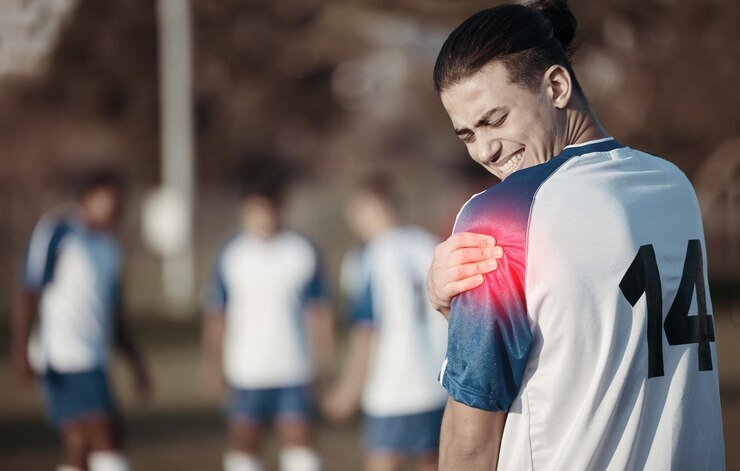Athletes and Dislocated Shoulders: Returning to Sports Safely

Shoulder dislocations are common injuries among athletes, especially those engaged in contact sports or activities that involve repetitive overhead motions. The journey from injury to returning to sports requires a comprehensive understanding of treatment options, the importance of early intervention, and the role of orthopedic surgeons in facilitating a safe and effective recovery.
Understanding the Role of an Orthopedic Surgeon
The Orthopedic surgeon plays a crucial role in the treatment on shoulder dislocations. These specialized physicians are trained to diagnose and manage musculoskeletal injuries, including dislocated shoulders. In the article, we will delve into the various aspects of athletes with dislocated shoulders, focusing on understanding the role of an orthopedic surgeon, the importance of early intervention, treatment options, the rehabilitation process, and the common challenges faced in the journey back to competitive sports.
The Importance of Early Intervention and Diagnosis
When an athlete sustains a shoulder dislocation, the orthopedic surgeon becomes crucial in providing effective and personalized treatment. Orthopedic surgeons specialize in the musculoskeletal system, including bones, joints, ligaments, and tendons. Their role in treating shoulder dislocations begins with a thorough examination of the injury, often involving imaging studies such as X-rays or MRIs to assess the extent of damage.
Orthopedic surgeons play a pivotal role in deciding the appropriate course of action, whether it be a non-operative approach or surgical intervention. Their expertise ensures that the chosen treatment aligns with the athlete’s specific injury, lifestyle, and long-term athletic goals.
Non-Operative Treatment Options
Early intervention is crucial in managing shoulder dislocations among athletes. It gives rise to diagnosis and treatment significantly impacts the overall outcome and the athlete’s ability to return to sports. Delayed intervention may lead to complications such as recurrent dislocations, ligament damage and long-term joint instability.
Orthopedic surgeons work closely with sports medicine professionals to swiftly diagnose shoulder dislocations and initiate appropriate treatment. Early intervention not only minimizes the risk of complications but also expedites the rehabilitation process, allowing athletes to resume their activities sooner.
Surgical Treatment Options
In cases where non-operative measures prove insufficient or when there are recurrent dislocations, surgical intervention may be necessary. The Orthopedic surgeon takes on various surgical techniques, such as arthroscopic stabilization or open surgery, to repair damaged ligaments and stabilize the shoulder joint.
Surgical treatment is often followed by a comprehensive rehabilitation program to ensure optimal recovery. The choice between surgical and non-surgical options depends on factors like the severity of the dislocation, the athlete’s age, and the specific demands of their sport.
The Rehabilitation Process for Athletes with Dislocated Shoulders
Rehabilitation is a critical phase in the journey of athletes recovering from shoulder dislocations. Whether treated surgically or non-operatively, a well-structured rehabilitation program is essential to restore strength, stability, and functionality to the shoulder joint.
Physical therapists, under the guidance of an orthopedic surgeon, focus on progressive exercises that target muscle strengthening, joint mobilization, and neuromuscular control. The rehabilitation process is often gradual, allowing athletes to regain confidence in their shoulder’s stability and functionality.
The Role of an Orthopedic Surgeon in Safely and Effectively Rehabilitating Athletes
Orthopedic surgeons continue to play a vital role during the rehabilitation phase, closely monitoring the athlete’s progress and making adjustments to the treatment plan as needed. Regular follow-up appointments, imaging studies, and communication with the rehabilitation team ensure that the athlete is on track for a safe return to sports.
The orthopedic surgeon expert is particularly valuable in assessing when an athlete is ready to resume full sports activities. Clear communication with the orthopedic surgeon, physical therapists, and the athlete is essential to avoid premature return, which could lead to re-injury.
Common Challenges and Complications in Rehabilitating Athletes with Dislocated Shoulders
Despite careful management, challenges and complications may arise during the rehabilitation of athletes with dislocated shoulders. These can include delayed healing, recurrent instability, and psychological barriers to returning to high-intensity activities. Orthopedic surgeons address these challenges through ongoing communication with the athlete, adjustments to the rehabilitation plan, and psychological support to enhance the athlete’s confidence in their shoulder’s stability.
Returning to sports after a dislocated shoulder requires a multidisciplinary approach, with orthopedic surgeons playing a central role in the journey from diagnosis to rehabilitation. The journey of athletes recovering from dislocated shoulders involves a multidisciplinary approach, with an orthopedic surgeon at the forefront of diagnosis, treatment, and rehabilitation. Early intervention, personalized treatment plans, and a commitment to the rehabilitation process are key factors in ensuring athletes can safely return to their sports, minimizing the risk of re-injury, and optimizing long-term joint health.